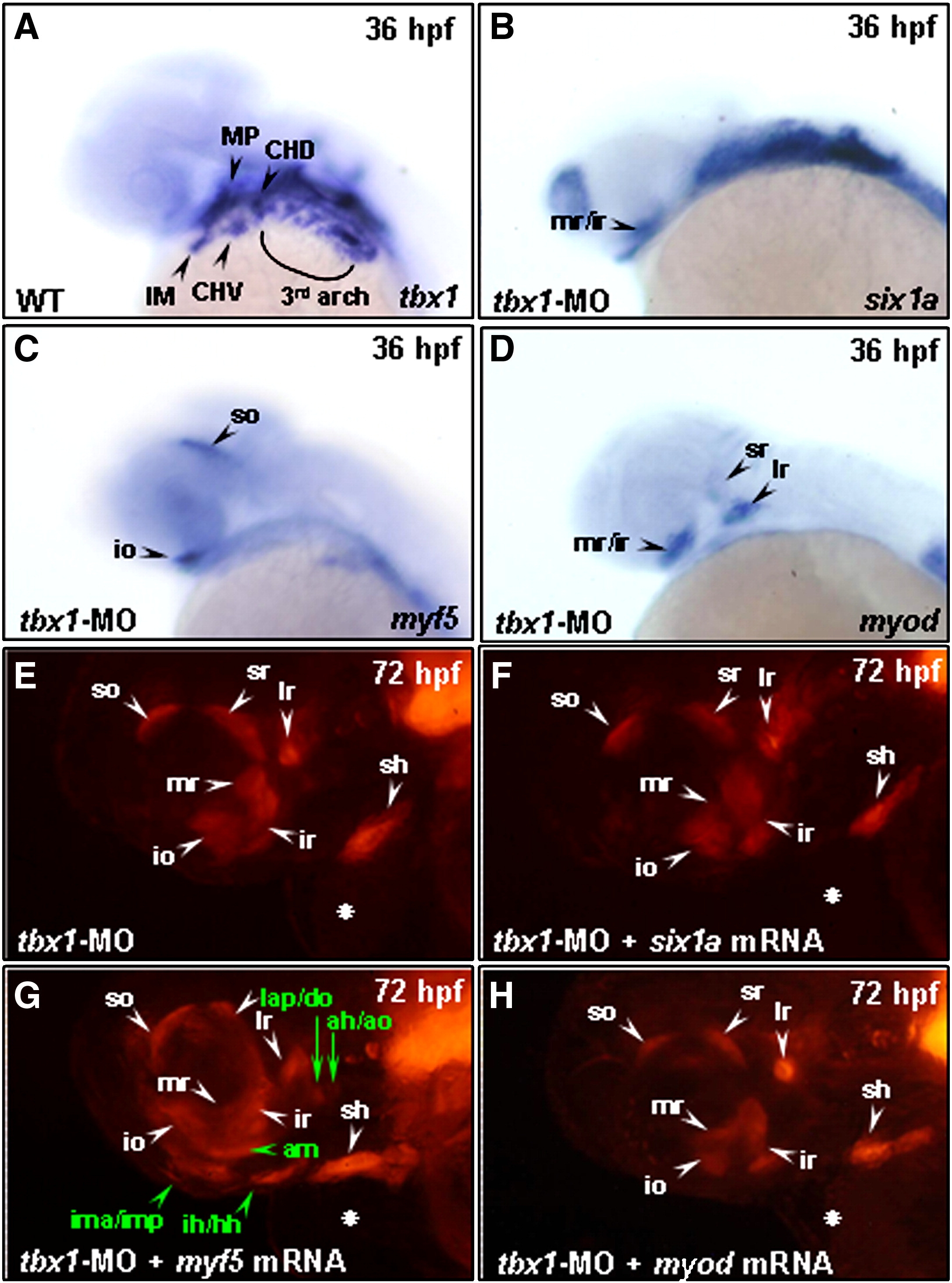Fig. 6
Fig. 6 The function of Six1a in branchial muscle development requires Tbx1 and Myf5 to play a specification role on arch muscle cell fate. Embryos derived from the wild-type strain (A–D) and from the transgenic line Tg(α-actin:RFP) (E–H) were examined at lateral view. Whole-mount in situ hybridization was used to detect the tbx1 expression in arch muscle and cranial mesoderm in wild-type embryos at 36 hpf (A). Compared to the above control embryos, the expressions of six1a (B), myf5 (C) and myod (D) in the 10 ng group of tbx1-MO-injected embryos were lost in arch muscles, but retained in extraocular muscles. We also observed that all the pharyngeal arch muscles were lost, but that 6 extraocular muscles developed normally in the 10 ng group of tbx1-MO-injected embryos derived from Tg(α-actin:RFP) at 72 hpf (E). With co-injection of 10 ng of tbx1-MO and either 150 pg of six1a mRNA (F), 100 pg of myf5 mRNA (G) or 50 pg of myod mRNA (H) in embryos, we found that only myf5 mRNA enabled embryos to rescue the RFP expression in lap, do, ah, ao, am, ima/imp and ih/hh (marked in green typeface of G). The heart defect induced by injection of tbx1-MO is labeled with a white star. ah, adductor hyoideus; am, adductor mandibulae; ao, adductor operculi; do, dilator operculi; hh, hyohyoideus; ih, interhyoideus; ima, intermandibularis anterior; imp, intermandibularis posterior; io, inferior oblique; ir, inferior rectus; lap, levator arcus palatini; lr, lateral rectus; mr, medial rectus; sh, sternohyoideus; so, superior oblique and sr, superior rectus. Embryos were all lateral views.
Reprinted from Developmental Biology, 331(2), Lin, C.Y., Chen, W.T., Lee, H.C., Yang, P.H., Yang, H.J., and Tsai, H.J., The transcription factor six1a plays an essential role in the craniofacial myogenesis of zebrafish, 152-166, Copyright (2009) with permission from Elsevier. Full text @ Dev. Biol.

